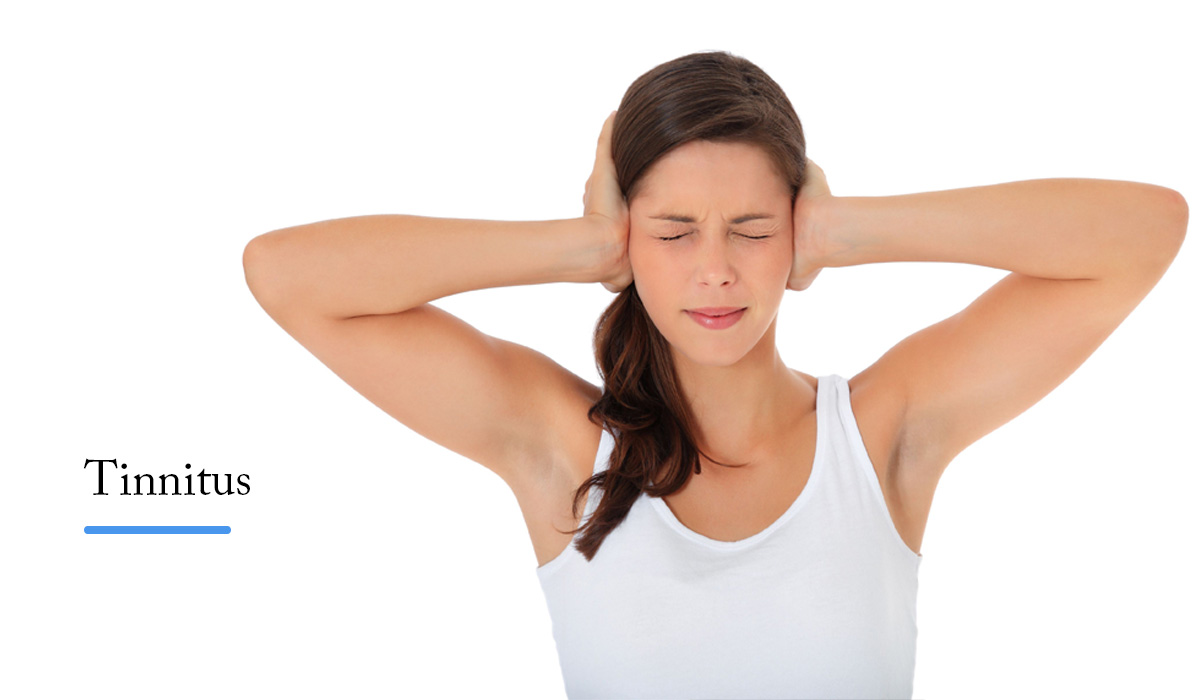What is Tinnitus?
Commonly described as a “ringing in the ears”, tinnitus refers to a constant sensation of sound in one or both ears or in the head when no external sound is present. Other descriptions of the sensation of tinnitus include a roaring, whistling, chirping or hissing. How loud the tinnitus is perceived varies from person to person, ranging from subtle to very intense.
It is estimated that 17% of the population suffers from it. This equates to 44 million Americans and over 5 million Canadians. In addition, 5% of the general population is severely debilitated by their tinnitus.
Tinnitus can occur in individuals with hearing loss as well as individuals with normal hearing and affects males and females equally.
Causes
Tinnitus is unknown what the exact physiological causes of tinnitus are. However, research has identified a number of sources associated with it. The most common contributor to the development of it has been cited as exposure to loud noise, which may only lead to temporary effects of tinnitus, or long-term exposure to noise, which most often leads to the permanent sensation of tinnitus. In fact, over 90% of tinnitus sufferers also have some level of noise-induced hearing loss.
A significant amount of wax build-up in the ear canal can also lead to the sensation of tinnitus or increase the perceived intensity of the tinnitus.
Medications are also a factor. Some medications are oto-toxic, which means they can produce damage to the hearing organ itself, whereas other medications produce tinnitus as a side-effect and will disappear once the medication is no longer taken. Aspirin is one example of a medication that can cause temporary tinnitus, when taken in large doses.
Ear and sinus infections can also be accompanied by tinnitus. However, it normally disappears once the infection has cleared up. Jaw misalignment and other facial abnormalities can induce it as well as any trauma to the head and neck region.
Reduce the effects
There is no cure for tinnitus, nor is there one approved medication that has been successful in permanently eliminating the presence of it for the general population of tinnitus sufferers. There are, however, several contributing factors that can have an effect on the perception and loudness.
Alcohol
Asprin
Caffeine
Cigarettes
Exposure to loud noise
Foods with a high amount of salt or sugar content
Stress and fatigue
If you suffer from it, try reducing or eliminating one or more of these contributors and see if you gradually perceive any change in the level or the tone of your tinnitus.
Treatments
Although there is no “cure”, several techniques have been developed to help individuals cope with tinnitus.
Many people find that a neutral external sound can be used to “cover up” their tinnitus to a point where it is not as noticeable. Soft music, a fan, or soothing nature sounds are commonly used to interfere with the perception of tinnitus and can be exceptionally helpful in typically quiet situations where tinnitus is most noticeable, such as when trying to fall asleep.
Tinnitus Retraining Therapy is intended to be a long-term solution to the management of one’s tinnitus. It also uses a masker device, but the masker is set to a level that allows it to still be heard. Combined with a specific kind of counseling, this treatment is intended to re-train the brain to ignore it. The training is much more extensive (8 months to 2 years) for this type of therapy and is not intended to provide an immediate or short-term solution. Instead, this therapy aims to give you the skills to successfully manage your tinnitus permanently.
Do hearing aids help?
Many hearing aid wearers who have hearing loss and suffer from tinnitus report that not only do they hear better when wearing hearing aids, their tinnitus becomes much less noticeable. If you have hearing loss and experience tinnitus, hearing aids can help to increase the amount of sound you want to hear while reducing the effects.



